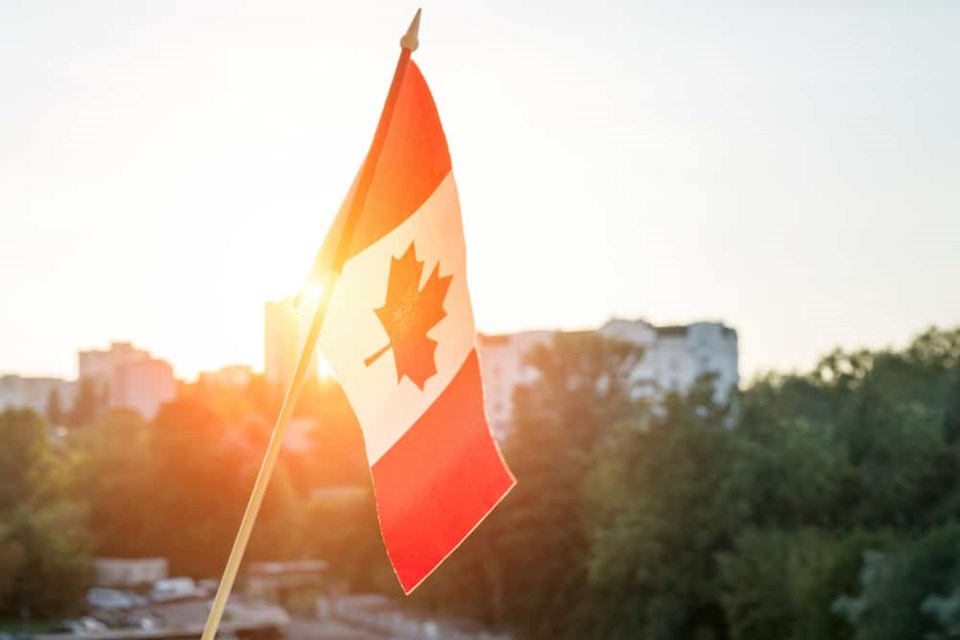July 1st is Canada Day, marking the formation of this country. But it comes with a different feel this year.
If I think about Canada as a whole, I would describe us as a people who believe in peace and well being for all. I would like to think all Canadians follow the Golden Rule: “Do unto others as you would have them do unto you.”
This one rule, philosophy, point-of-view, religious edict, or whatever you would like to call it, is espoused by virtually every religion and most civil societies.
This version is the English translation from the Sermon on the Mount but it is a theme found in many different places in the Bible such as Luke 6:31 “And as ye would that men should do to you, do ye also to them likewise.”
It is found in Judaism: “What is hateful to you, do not do to your fellow man: this is the whole Torah; the rest is the explanation; go and learn.” and in Islam: “None of you [truly] believes until he wishes for his brother what he wishes for himself.”
Since these three are all Abrahamic religions, it is perhaps not surprising the same statement keeps appearing, albeit in different words and form. Sometimes the Golden Rule is stated in a positive form – desire for others what you desire for yourself – while others times it is in the negative – do not do to others what you would not have done to you. But the sentiment in each case is the same.
The Golden Rule isn’t tied to just monotheistic religions. In Hinduism, it is “One should never do that to another which one regards as injurious to one’s own self.” In Buddhism, “Hurt not others in ways that you yourself would find hurtful.” In Jainism, “In happiness and suffering, joy and grief, we should regard all creatures as we regard our own self.”
In Confucianism, “What you do not wish for yourself, do not do to others.” In Taoism, “Regard your neighbour’s gain as your own gain, and your neighbour’s loss as your own loss.” In Zoroastrianism, “Do not do unto others whatever is injurious to yourself.”
I could go on and likely have belaboured the point but at its heart, what makes for a good society is the fundamental question of how we treat each other. How do we treat our fellow human being? How do we treat the less fortunate? How do react in times of sorrow?
I would like to believe the Canada I live in is a compassionate society where everyone is treated with respect and the least amongst us is treated the same as the greatest.
But I am not sure this is the case.
The term hypocrisy is used when a person’s actions belie their beliefs. How can someone go to church every Sunday, claim to be a devote Christian, and then argue we need to “do something about these people (the homeless and less fortunate) downtown?”
How can we simply say “No, you can’t stay here. Move on?” Is this not the equivalent to claiming there is no room at the inn? Yet I know people who simply want the homeless to disappear from our community because it is hurting their business rather than asking “what if that was me?”
And by “othering” individuals in dire circumstances, they say “Well, I would never be in that situation. That is what happens to others but not people like me.” Except it does happen, for reasons often perversely beyond our control.
We are blessed to live in a society that affords most of us a comfortable life. Where we are able to meet the necessities and sustain ourselves on a daily basis. But not everyone is so fortunate.
But it is not just homelessness. We are experiencing a moment in history where the ugly truth about our collective past is being revealed. The Truth and Reconciliation Commission found credible evidence for the disappearance of over 3,000 children (and likely many more) through the residential school system. For this, as a nation, we are truly sorry.
However, before writing a letter to the editor saying that “First Nations people just need to get over it,” consider what you would feel if it was your child who was taken from you only to never return. Would you “get over it?” Would you forgive and forget?
It is clear that even with the best of intentions, no one was following the Golden Rule. Our forebearers did not treat our fellow humans as they would want to be treated. They did not do unto others.
When I started writing this, I didn’t mean it to be preachy. I am not a religious person. But on this Canada Day, maybe we should all reflect on how we treat others.



